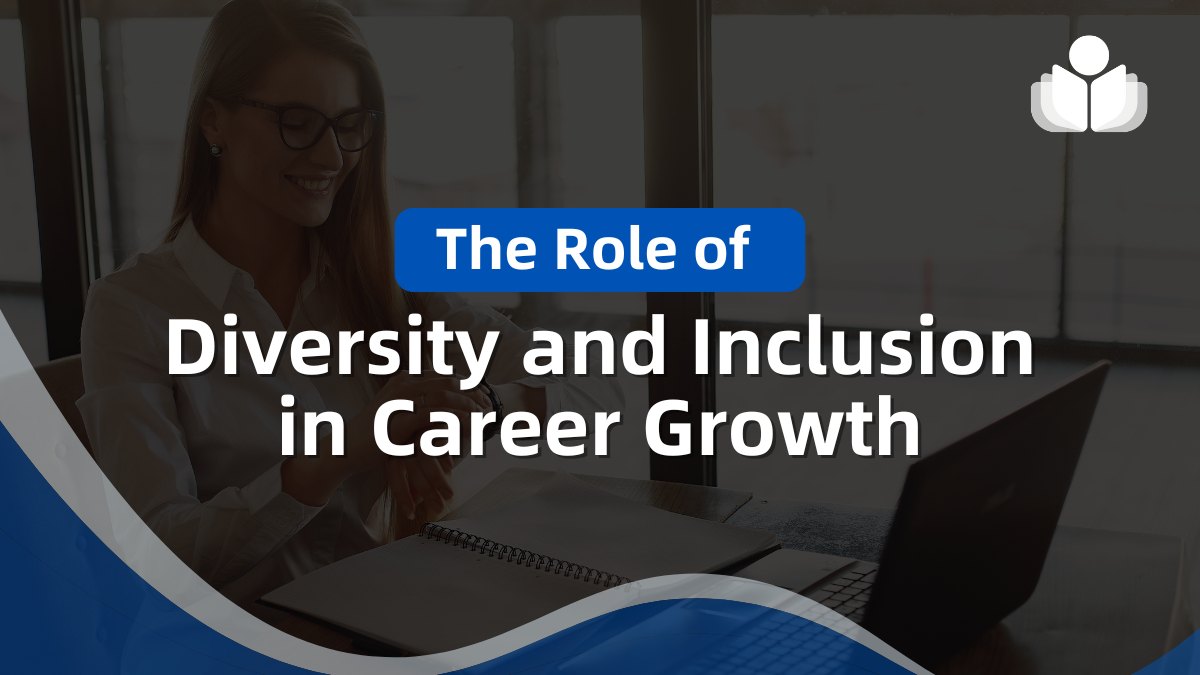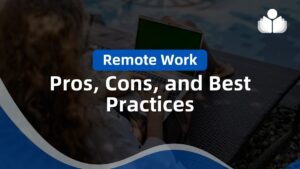Diversity represents the variety of identities within a workplace, including race, gender, age, and cultural background, while inclusion refers to creating a supportive environment where everyone feels valued and heard. Today, D&I is critical in fostering innovation, collaboration, and engagement, making them essential for organizational and individual success.
This guide explores how D&I initiatives can contribute to personal and career growth. It helps readers understand the advantages of inclusive environments for individual development and organizational success. Through D&I, workplaces can become more equitable and empowering for everyone.
Understanding Diversity and Inclusion in the Workplace
Components of Diversity
- Visible Diversity: Refers to characteristics such as race, gender, age, and physical abilities that are often apparent.
- Invisible Diversity: This category includes attributes like sexual orientation, religion, socioeconomic background, education, and neurodiversity, which may not be immediately visible but are equally important.
Importance of Inclusion
Inclusion ensures that all voices are heard, respected, and valued. Creating an inclusive environment fosters belonging and psychological safety, where everyone feels comfortable contributing and participating. Such environments empower employees to reach their full potential.
D&I Spectrum
True D&I goes beyond representation. Diversity without inclusion can lead to tokenism, while meaningful inclusion allows individuals to contribute and influence actively. Effective D&I involves equal representation and fostering an environment where everyone feels they belong.
Impact of Diversity and Inclusion on Career Growth
Working with individuals from different backgrounds exposes employees to diverse perspectives, promoting critical thinking and creativity. A diverse team brings varied approaches to problem-solving, driving innovation, and fostering personal and professional growth through collaborative learning.
Access to Mentorship and Networking
D&I initiatives often encourage mentorship from leaders of diverse backgrounds, broadening career guidance opportunities. These initiatives help individuals expand their professional networks and access valuable insights, enhancing career growth and exposing them to varied perspectives on advancement.
Visibility and Recognition
Inclusive practices ensure that everyone’s contributions are recognized reasonably, reducing biases that may hinder the recognition and promotion of underrepresented individuals. D&I initiatives create more equitable evaluation practices, increasing the likelihood of advancement for a broader range of employees.
Skill Development Through Diverse Experiences
Collaborating in diverse environments cultivates cultural competence, adaptability, effective communication, and interpersonal skills. Inclusive settings enable employees to develop resilience and emotional intelligence, valuable skills that enhance their professional growth and contribute to a more cohesive work environment.
Benefits of D&I for Organizations and Individual Careers
Inclusive workplaces create an environment where employees feel valued and understood, significantly boosting morale. When individuals feel included, they are more motivated, leading to higher job satisfaction. Studies show that inclusive organizations experience better employee engagement, as individuals are likelier to bring their whole selves to work.
Enhanced Productivity and Performance
Diverse and inclusive teams consistently outperform less diverse teams due to the wide range of perspectives and ideas they bring. This variety enables innovative problem-solving and a more creative approach to challenges.
Many companies with strong D&I practices, such as Microsoft and Salesforce, have shown high levels of innovation, which has driven performance and set them apart in competitive industries.
Attraction and Retention of Talent
Top talent increasingly seeks employers who prioritize D&I. Organizations with robust D&I programs are seen as desirable workplaces, which helps attract skilled candidates and retain them long-term. By focusing on inclusivity, companies gain a reputation as progressive employers, contributing to lower turnover and better team cohesion.
Career Longevity and Growth
D&I in the workplace creates positive experiences for individuals that encourage long-term commitment and growth within the organization. When employees see themselves represented and valued, they are more likely to stay and pursue advancement.
Organizations that promote D&I tend to offer better opportunities for career progression and support for underrepresented groups, enhancing overall career satisfaction and longevity.
Challenges to Diversity and Inclusion in Career Growth
Unconscious Bias and Stereotypes
Unconscious biases and stereotypes can impact hiring, promotion, and evaluation processes. These biases often result in certain groups being overlooked or underestimated, hindering career advancement. For example, stereotypes about gender or ethnicity can lead to inaccurate assumptions about an individual’s capabilities, which obstructs inclusive growth.
Lack of Representation in Leadership
Limited diversity at the leadership level can restrict career growth opportunities for underrepresented groups. With role models or mentors who share their backgrounds, these individuals may be able to access guidance or sponsorship, making it easier to advance within the organization.
Inconsistent D&I Practices Across Organizations
Commitment to D&I varies widely, leading to uneven support for diverse employees. When D&I initiatives lack clear policies or consistent enforcement, employees from underrepresented backgrounds may receive different support, which limits the effectiveness of these programs.
Resistance to Change
Some employees or leaders may resist D&I initiatives due to ingrained workplace cultures or personal discomfort with change. Overcoming resistance requires education and awareness efforts that help everyone understand the benefits of D&I for personal and organizational growth.
Strategies for Leveraging D&I for Personal Career Growth
Mentorship and Allies
Finding mentors, allies, and sponsors who support D&I values is essential for career development. Building relationships with mentors from diverse backgrounds can offer valuable perspectives and guidance. Look for colleagues or leaders who advocate for inclusivity and are open to mentorship opportunities.
Diverse Network
Expanding one’s network to include professionals from various industries and backgrounds is invaluable. Networking with peers from underrepresented groups and other diverse professionals provides a broader perspective and opens doors to new opportunities and insights.
Advocating for Inclusivity in Your Role
Even without formal responsibility, promoting inclusive practices within your team or department is impactful. Simple initiatives like encouraging diverse perspectives in meetings or supporting team members from different backgrounds contribute to a more inclusive culture.
Engaging in D&I Training and Workshops
Participating in D&I training builds cultural competence and helps reduce unconscious bias. Continuous learning in D&I benefits personal growth and positions you as an advocate within your organization, fostering a more inclusive and collaborative work environment.
Role of Inclusive Leadership in Career Development
Inclusive leaders exhibit empathy, open-mindedness, and a dedication to fairness and equity. They create a workplace environment that encourages team members’ growth by actively listening and valuing diverse perspectives.
Inclusive leaders foster an atmosphere where individuals feel safe sharing ideas and taking professional risks, supporting a culture of development and respect.
Mentorship and Sponsorship by Inclusive Leaders
Inclusive leaders mentor and sponsor employees from diverse backgrounds, helping them navigate career challenges. Through advocacy and support, they open doors for career advancement and promote equity in career opportunities.
Such mentorship and sponsorship are vital, as they help underrepresented employees gain visibility and access to growth-oriented projects.
Building Trust and Empowering Employees
Trust is fundamental to inclusive leadership, enabling leaders to build authentic employee relationships. Inclusive leaders foster professional development, boost self-confidence, and encourage employees to realize their potential by empowering their team members.
This approach contributes to a motivated and high-performing team where each member feels valued and supported.
Trends in Diversity and Inclusion for Career Growth
D&I is evolving to focus more on equity and belonging, shifting to DEI (Diversity, Equity, and Inclusion). Equity ensures fair treatment and access to opportunities while belonging deepens employee engagement, fostering commitment and motivation in diverse teams.
This approach enhances career growth by creating an environment where all employees feel integral to the organization.
D&I in Remote and Hybrid Work Environments
As remote and hybrid work models become more common, companies are rethinking D&I practices. Virtual work environments offer unique opportunities for inclusivity, such as hiring talent from diverse geographic locations.
However, challenges remain, including maintaining cohesion and inclusivity in dispersed teams. Effective communication and intentional inclusion strategies are essential to ensure that all team members feel valued in virtual settings.
Technology and Data-Driven D&I
Data and technology are transforming D&I efforts. Organizations are increasingly using data to measure the effectiveness of D&I initiatives and assess their impact on career growth. AI tools help identify biases in hiring and promotion, supporting fairer practices.
Data-driven approaches allow companies to track progress, make informed decisions, and create more inclusive workplaces.
Conclusion
Diversity and inclusion substantially benefit individuals and organizations, fostering a supportive environment where all employees can thrive. D&I initiatives enhance engagement, encourage career advancement, and promote a positive work environment.
Supporting D&I actively contributes to personal growth and organizational success. While challenges persist, pursuing diversity and inclusion fosters an equitable, innovative, and prosperous workplace for everyone. Embracing D&I is a journey that leads to more fulfilling careers and a brighter future for organizations and individuals alike.
 Sections of this topic
Sections of this topic
















